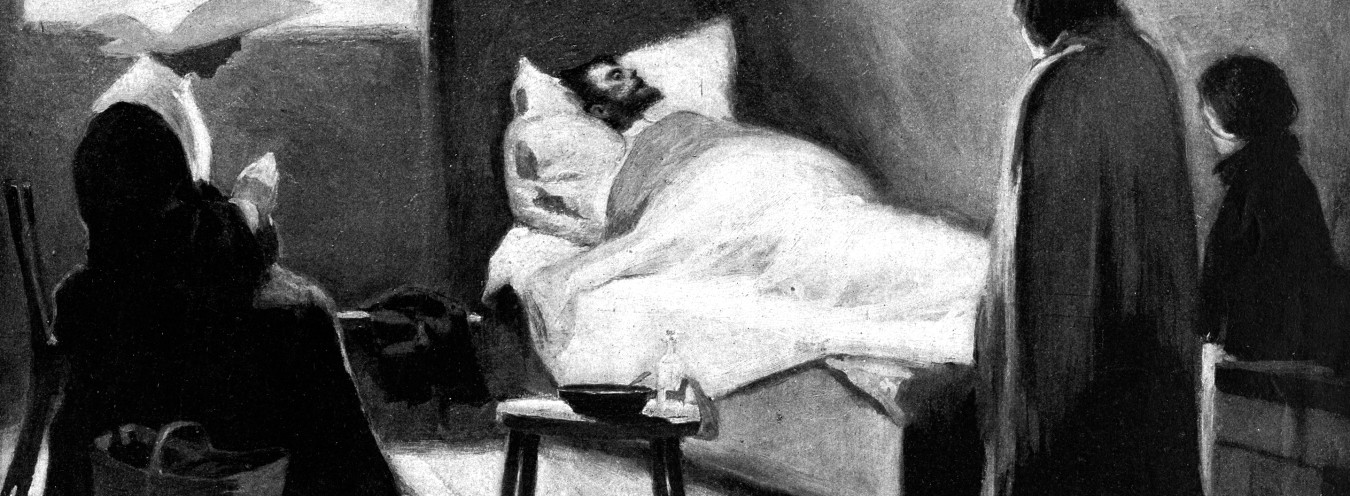
Testaments
[T]he late Duchess willed all her fortune, apart from a small amount, to charity. […] [Kazimierz Starski] informs us that he – in the name of his ill-used family – was starting a law-suit to invalidate the will. (683)
The Doll is a novel in which motifs of birth and new life are almost completely absent. To the contrary, it is permeated with themes such as decline, fall, fading, death, as well as – last wills and testaments. Those forms of passing on one’s possessions pepper the book. For example, Franz Mincel leaves his whole estate to his brother Jan; Jan’s widow passes the shop on to Stanisław Wokulski, Duchess Zasławska makes many bequests to her relatives and persons from outside the family, while Aunt Hortensja leaves 60 thousand roubles to Izabela Łęcka.
Persons from outside the family and institutions – such as the Church or scientific, educational, cultural, or charitable organisations – could also be made beneficiaries by the testator. The testator could also appoint executors, whose task was to make sure that the terms of the testament are rigorously observed. If anyone – for example, relatives of the deceased – felt wronged and wanted to question the validity of the testament, they had to start a court case to have it revoked. This is what Kazimierz Starski does, telling the executors of Duchess Zasławska’s will that he is acting on behalf of the wronged family. The reason he gives is that the grandmother has lost her mind and was non compos mentis at the time her will was made.
Prus’s moralising attitude in The Doll is apparent in his criticism of such behaviour from many aristocrats, who preferred to wait for the inheritance due from their relatives rather than earn money by work – and then waste the fortune as quickly as they came into it. In the novel, they are subjects of mockery or disrespect expressed by other characters. For example, Julian Ochocki says about Starski that he’s living with his grandmother […] and now he’s worrying that he certainly won’t inherit her fortune. […] [T]he Duchess prefers to support foundlings rather than the casino at Monaco!
The document created by Wokulski through a notary public, called the formal will by researchers, still remains a mystery. It contains his financial dispositions in case of his death concerning the sum of 70,000 roubles deposited in a bank and 120,000 roubles left with Szlangbaum. Wokulski divides this money among Ochocki, Rzecki, Helena Stawska’s daughter Helunia, Węgiełek, the carpenter from Zasławek, and the Wysocki brothers (carter from Warsaw and railwayman from Skierniewice). Prus adds, Wokulski had asked the lawyer, in an emotional manner, that they should accept the bequests as coming from a dead man, and told him not to publish the will before October 1st. Hence the question – is it a will or a deed of gift made during his lifetime? Does the notary public have the right to reveal the contents of the document even though Wokulski’s death has not been officially confirmed, and neither has he been reported missing?
At that time, the opening of the estate could only happen after the court deemed the person in question to be deceased. The notary public would not have mistaken a testament for a deed of gift. The answer to the question above, then, must be negative: the document that the notary reads to Rzecki is not a last will and testament, but, rather, a disposition of the estate in the case of death, a sort of deed of gift masquerading as a testament. This is also why the characters in The Doll react as if it was a deed of gift and demand the funds to be paid immediately.
Bibliografia
- Ustawa z dnia 23 kwietnia 1964 r. – Kodeks cywilny (Dz. U. Nr 16, poz. 93 z późn. zm.).



